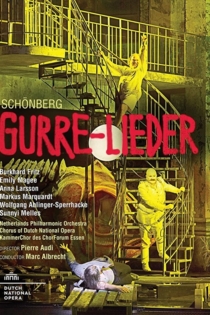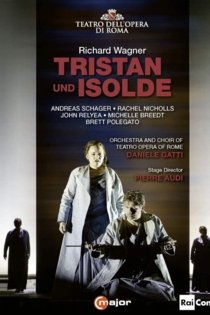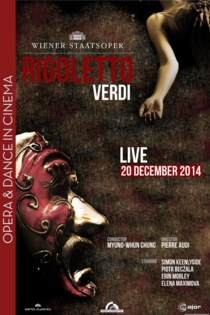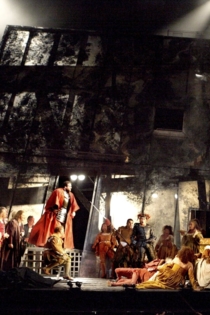
Pierre Audi
1957 (69 лет)Castor & Pollux
Pierre Audi, Misjel Vermeiren
Anna Maria Panzarella, Véronique Gens
Recorded at the Musiektheater, Amsterdam on 21 & 25 January 2008. Performed by De Nederlandse Opera, composer Jean-Philippe Rameau's renowned tragedy "Castor et Pollux" tells the myth-based story of the selfless love between two brothers: Castor, who is mortal, and the immortal Pollux. When Castor dies trying to prevent the kidnapping of the woman he loves, Pollux decides to become mortal and replace his brother in the Underworld. Finnur Bjarnason, Henk Neven and Anna Maria Panzarella star.
Castor & Pollux
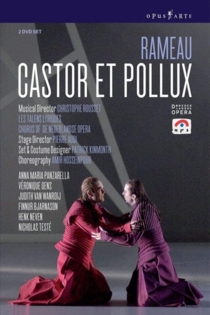
Zoroastre
Pierre Audi
Anders J. Dahlin, Evgueniy Alexiev
Music - Making full use of Drottningholm Theatre's unique 18th-century baroque theatre machinery, as well as his deep creative understanding of the profound drama of the work, stage director Pierre Audi creates a production of ZOROASTRE that completely accords with the spirit of Rameau. True to the form of the tragedie lyrique, choreographer Amir Hosseinpour's dances perfectly match the weight and meaning of both plot and music. The ensemble, Les Talens Lyriques, reinforced with musicians from the Drottningholm Court Theatre Orchestra and Chorus, is expertly and passionately led into the musical stratosphere by musical director Christophe Rousset. This intensely dramatic production is captured live in vibrant High Definition video and true surround sound. - Anders J. Dahlin, Evgueniy Alexiev, Sine Bundgaard
Zoroastre
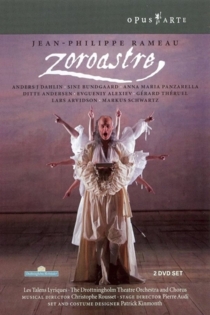
Die Zauberflöte
Pierre Audi
Christian Gerhaher, Genia Kühmeier
The Queen of the Night enlists a handsome prince named Tamino to rescue her beautiful kidnapped daughter, Princess Pamina. Aided by the lovelorn bird hunter Papageno and a magical flute that holds the power to change the hearts of men, young Tamino embarks on a quest for true love, leading to the evil Sarastro's temple where Pamina is held captive. The Pierre Audi production of Mozart's Die Zauberflöte was recorded live at the 2006 Salzburger Festpiele.
The Magic Flute
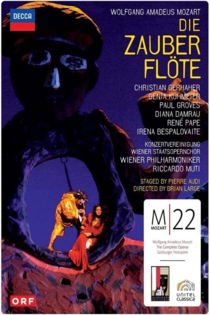
Gluck: Iphigenie en Aulide / Iphigenie en Tauride
Pierre Audi
Véronique Gens, Nicolas Testé
Before the Trojan War, Agamemnon gathered the Greek armies at the port of Aulis. The goddess Diane sent unfavorable winds to prevent the Greeks from sailing. Her oracle set a condition for Agamemnon: to earn the right to sail forth and destroy an innocent country, he would have to sacrifice his own daughter. Agamemnon accepted these terms and killed his young daughter Iphigénie on the altar. In his play Iphigenia in Tauris Euripides imagines that Diane plucked Iphigénie from that altar and delivered her to a temple in distant Tauride, where Iphigénie began to serve the enemy Scythians as Diane’s high priestess—all the while Iphigénie’s family believing her dead.
Gluck: Iphigenie en Aulide / Iphigenie en Tauride
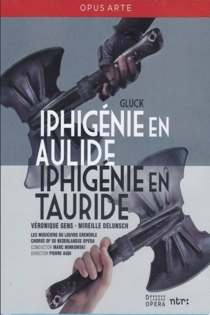
Parsifal: Dutch National Opera (Fischer)
Pierre Audi
Christopher Ventris, Petra Lang
Iván Fischer makes his DNO debut. He conducts the Royal Concertgebouw Orchestra. Pierre Audi, artistic director of DNO and the Holland Festival, directs his first new DNO production since Saint François d'Assise (2008). For Parsifal Audi once again joins forces with the British sculptor Anish Kapoor (décor). Alejandro Marco-Buhrmester previously sang the role of Amfortas at the Opéra National de Paris and the Bayreuther Festspiele. Kurt Rydl (Titurel/Klingsor) made previous DNO appearances as Hagen/Hunding in Der Ring des Nibelungen and as Heinrich in Lohengrin. Kurt Rydl has been an honorary member of the Wiener Staatsoper since 1999. Falk Struckmann has frequently sung the role of Amfortas, but now makes his first DNO appearance in his role debut as Gurnemanz. The title role is sung by Christopher Ventris, who previously appeared at DNO as Steuermann in Der fliegende Holländer. Petra Lang (Kundry) previously sang Brangäne in Tristan und Isolde and Venus in Tannhäuser at DNO.
Parsifal: Dutch National Opera (Fischer)
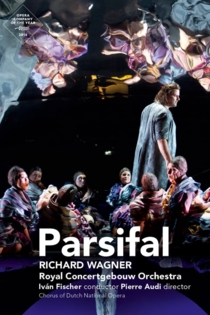
Berlioz: Les Troyens
Pierre Audi, Misjel Vermeiren
Eva-Maria Westbroek, Yvonne Naef
After a siege of ten years, the Greeks leave Troy. A giant wooden horse has been left on the beach. Despite Cassandra's dark premonitions, the offering is borne into the city...Pierre Audi directs Dutch soprano Eva-Maria Westbroek and American tenor Bryan Hymel in this epic Berlioz's opera, that requires an omnipresent chorus, a huge orchestra and a great virtuosity from the solists.
Berlioz: Les Troyens
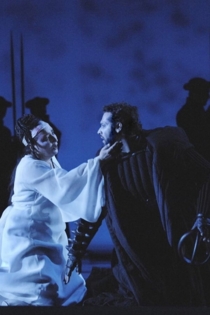
Saint Francois d'Assise
Pierre Audi
Messiaen's breathtakingly intense opera on the life of St Francis of Assisi stars Rod Gilfry as the charismatic visionary, beguiled by the glory of creation, yet fearful of both its imperfections and its transience. Pierre Audi's thoroughly engaging production for The Netherlands Opera brings out the naive imagery, the grandeur, and above all the vast tenderness of the resplendent score, revealed as a grandiose ritual with the meaning and purpose of life as its central theme. But the real drama of the work takes place in the orchestra. Elevated to stupendous heights by the sublimely inspired Ingo Metzmacher, The Hague Philharmonic and the Chorus of De Nederlandse Opera combine forces with a brilliant cast to produce the finest possible musical pilgrimage.
Saint Francois d'Assise
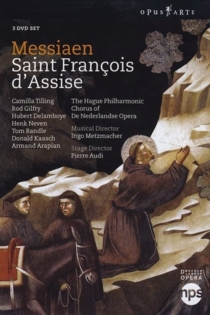
Handel's Tamerlano
Pierre Audi
Christophe Dumaux, Jeremy Ovenden
In Tamerlano, Handel defied rules both written and tacit—offering a main role to a mature tenor at a time when the castrato voice dominated; and not shying away from shocking scenes that other composers approached hesitantly, like suicide. Pierre Audi’s elegant, minimalist staging allows an all-star cast of singers to highlight the work’s many dramatic elements, proving that Baroque opera can still move and thrill us as it did 300 years ago!
Handel's Tamerlano
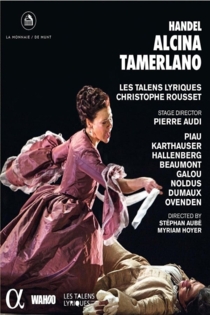
Schönberg: Gurre-Lieder
Pierre Audi
Burkhard Fritz, Emily Magee
Rarely has a theatrical world premiere been so warmly received as Dutch National Opera’s production of Arnold Schönberg’s late-Romantic Gurre-Lieder in 2014. The production fulfilled a fervent wish of principal conductor Marc Albrecht. The music of Gurre-Lieder is timeless, and so is its subject: a passionate, yet forbidden love. The story harks back to a Scandinavian saga, situated in Gurre. King Waldemar loves the girl Tove, who is a mysterious character, connected to both the world of people and the world of birds. The queen is jealous and has Tove killed. The Wood Dove tells of this in a moving song and the king accuses God of cruelty. A nightmarish scene follows, of a fierce army killed in battle, which rampages like a horde of ghosts. The radiant dawn at the end of Gurre-Lieder shows the insignificance of human destiny compared to the power of nature.
Schönberg: Gurre-Lieder
